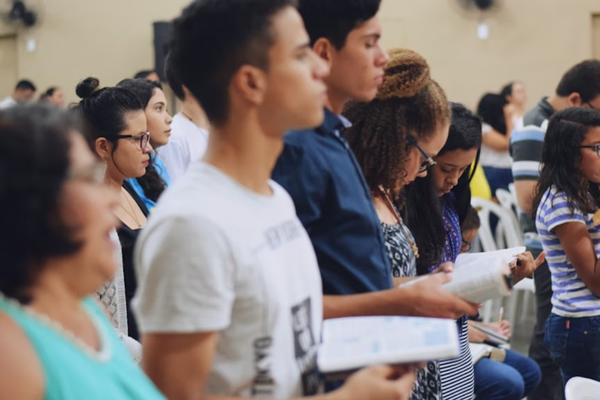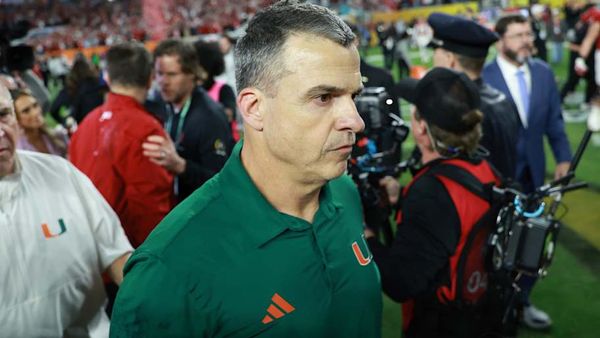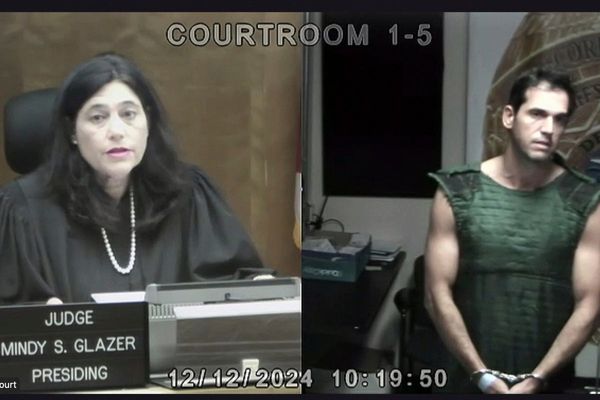
Qantas has been condemned for wasting “eye-watering amounts” on “legal warfare” to defend what unions describe as the “largest case of illegal sackings in Australian history”.
The high court on Tuesday began hearing an appeal by Qantas against rulings in the federal court that its decision to outsource the jobs of 1,700 ground handlers in 2020 was unlawful.
The 2021 decisions ruled the airline had acted against protections in the Fair Work Act when it terminated jobs at 10 airports amid the pandemic in November 2020.
The decisions included a finding that the airline’s actions were designed to stymy the workers from collective bargaining and potentially taking industrial action. They also left the airline exposed to a significant compensation bill.
Qantas argues the outsourcing was a necessary financial measure to save $100m annually and reduce future spending on ground handling equipment such as tugs and baggage loaders.
The airline also argues that the workers did not have the right to take protected industrial action at the time it announced the outsourcing and that it should not be penalised “for taking adverse action to prevent an employee acquiring future rights, the exercise of which at the time of the adverse action would have been unlawful”.
Before the two-day hearing began on Tuesday, sacked Qantas workers and Transport Workers’ Union officials gathered outside the high court in Canberra.
The TWU national secretary, Michael Kaine, said Qantas’s actions constituted “the largest case of illegal sackings in Australian history” and said the high court’s ruling on the matter would have widespread ramifications for workers’ rights beyond just the aviation sector.
“Today the high court will be asked to determine once and for all whether Qantas outsourcing was not just cruel, irresponsible and bad for business, but whether it is confirmed as the largest case of illegal sackings in Australian history,” Kaine said. “This is Qantas’s last chance.”
He criticised Qantas for spending significant amounts on the high court proceedings, instead of using the money to rebuild the company and its damaged reputation.
A TWU survey of the sacked workers showed half had not found meaningful employment in the two-and-a-half years since the sackings. One-third suffered mental distress and one in 10 had had suicidal thoughts.
The sacked Qantas worker Don Dixon said his colleagues had lost homes and suffered mental distress and strains on their relationships.
“The plan was let’s break these workers,” he said. “Well they haven’t broken us, we’re still here, as you can see, in big numbers.”
In court, Justin Gleeson SC, representing Qantas, argued that the outsourcing decision was announced at a time of significant financial turmoil for the company, at the height of the pandemic in November 2020.
He said the decision had delivered $100m per year in savings through the lower cost of outsourced employees and their greater access to technology.
The airline gave the chance for staff and the union to develop an alternative cost-saving proposal, but it only promised to cut costs by $18m per year, the court heard.
Gleeson also said that Qantas employees were not entitled to ballot for protected action at the time the outsourcing decision was made.
This meant the airline’s decision did nothing to compromise their ability to take industrial action, he said.
“Nothing Qantas did by way of outsourcing prevented the employees from seeking to bring [protected industrial action] into existence, let alone exercising any [protected industrial action] rights,” Gleeson told the court.
The airline also told the court that it was entitled to time the decision to make it easier to implement, including delivering it at a time when the union had less “muscle” due to the pandemic-related inactivity of staff.
The TWU is joined in responding to the appeal by the federal workplace relations minister, Tony Burke, who the high court permitted to intervene in the case on Tuesday.
The Labor senator Tony Sheldon, speaking alongside the workers, said he would agitate for legislative change should Qantas be successful in the high court.
The Maurice Blackburn lawyer Giri Sivaraman said the decision had far wider ramifications for workers’ rights.
“Qantas lost this case on the facts,” he said. “Now it’s trying a legal argument to get the high court to reduce protections in the Fair Work Act to make its actions lawful. If Qantas wins, protections for all workers across Australia will be reduced.”
The hearing continues before the high court.







